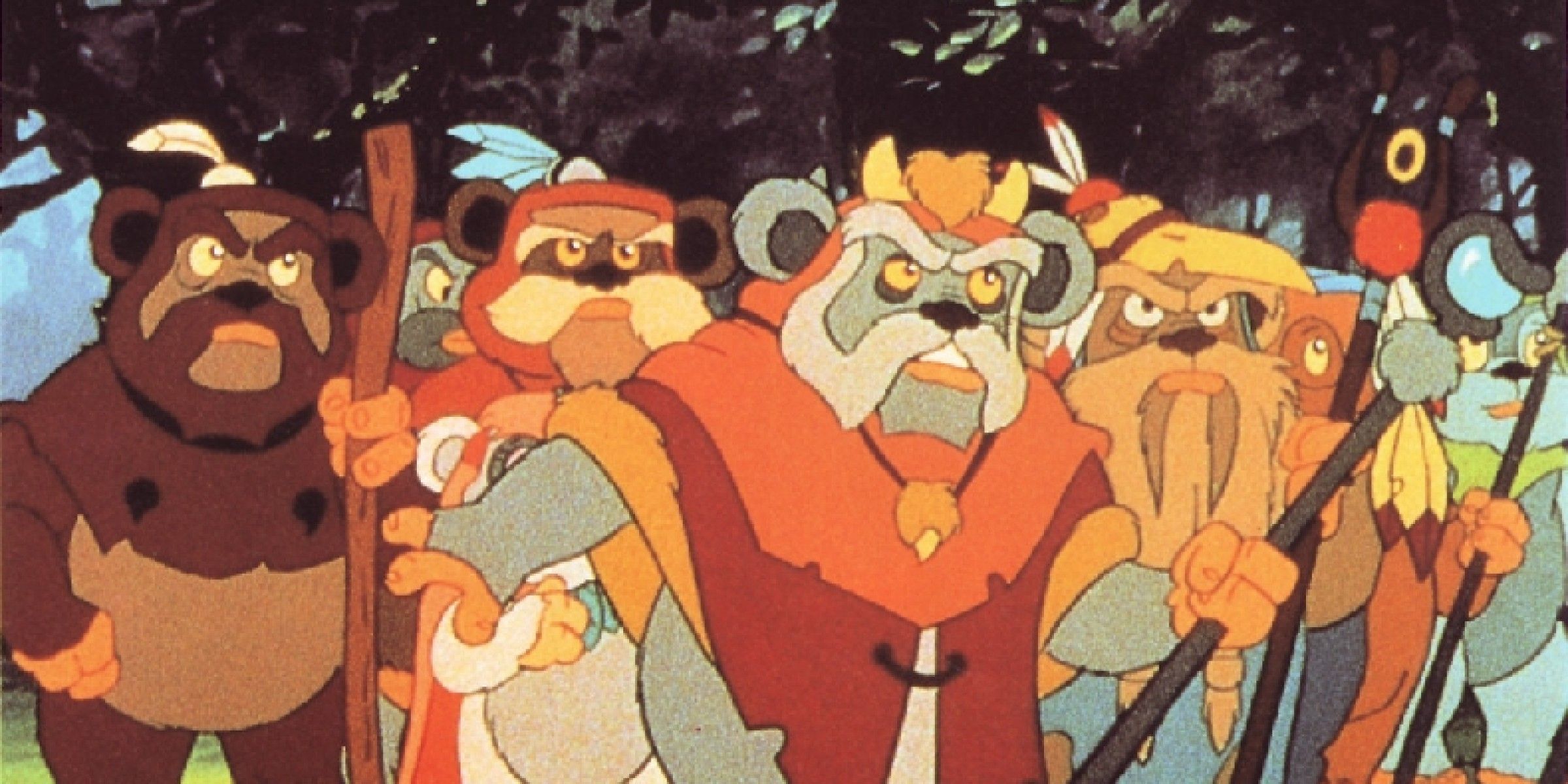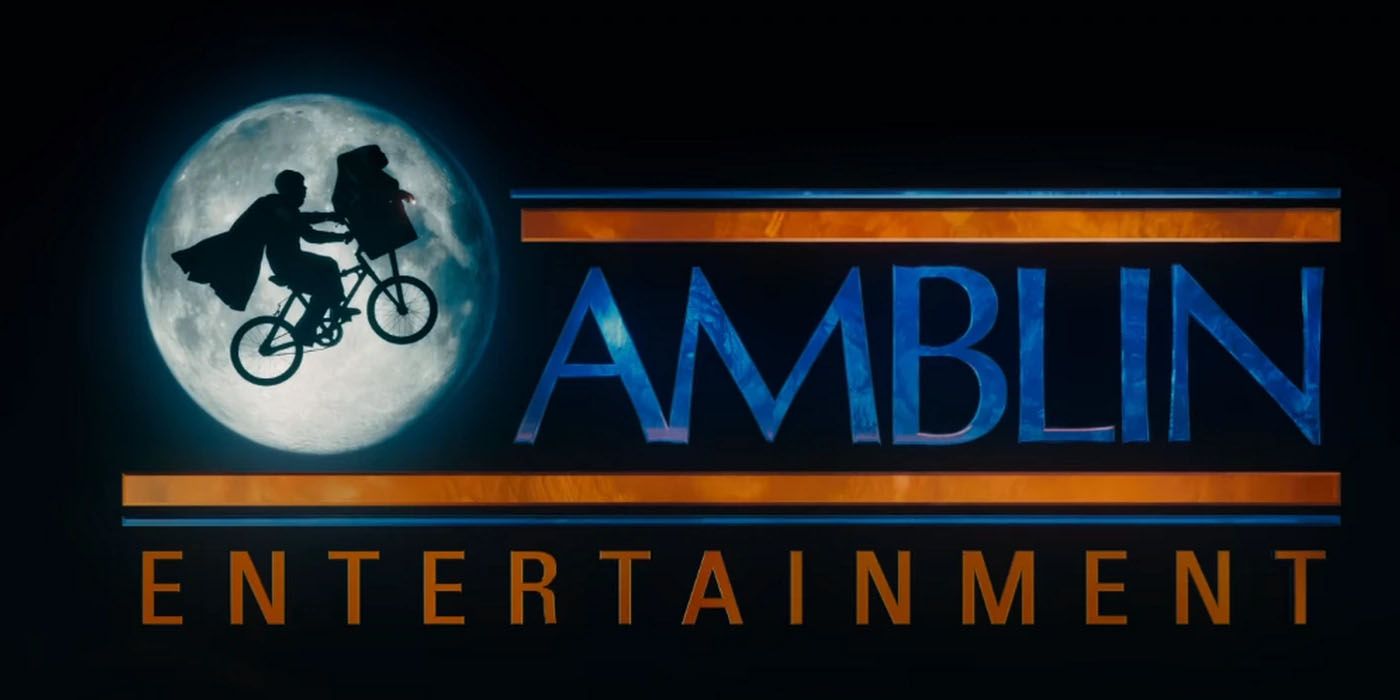The upcoming Star Wars: Skeleton Crew gives the Star Wars franchise the chance to create a 1980s Amblin-style coming-of-age story. In doing so, it can make up for the franchise never quite hitting the mark with its attempts to appeal to a young audience during the actual ’80s. While many movies and shows today attempt to capture the 1980s family movie feeling, its connection to Star Wars gives Skeleton Crew a unique opportunity to succeed.
Star Wars: Skeleton Crew was announced during this year’s Star Wars Celebration in Anaheim, and is slated to premiere in 2022. So far, not much is known about Skeleton Crew. The series will be created by director Jon Watts and writer Chris Ford, who are best known for working on Spider-Man: Homecoming and its sequels, and feature Jude Law. Skeleton Crew has been described as a coming-of-age story with child protagonists, with producer Dave Filoni describing the series as is “as much for kids as The Clone Wars,” suggesting that it will also appeal to an older demographic.
While The Empire Strikes Back and Return of the Jedi were released in the 1980s, both were influenced by the same 1970s New Cinema spirit and tradition of pulp science-fiction as A New Hope. Although the original Star Wars movies were heavily marketed to children, there were no major child characters, and the franchise has never really done an adolescent coming-of-age story of the type that became very popular later in the decade. The franchise’s TV series aimed at children in the ’80s took a very different tack. Skeleton Crew has the opportunity to rectify that blind spot.
Why Star Wars ’80s TV Show Plans Failed

Following the release of The Return of the Jedi, George Lucas’ plans didn’t include any more cinematic Star Wars movies, but the franchise continued through a number of spin-off projects as part of the Star Wars Extended Universe. The only TV shows included in this were a pair of animated series. Droids, starring C3P0 and R2-D2 and taking place before A New Hope, and Ewoks, based on the two previous Ewoks TV movies and developed by future Batman: the Animated Series head Paul Dini, premiered as a one-hour block in 1985 on ABC.
While Star Wars as a franchise was still very popular, the two animated shows struggled to find an audience. Droids was canceled after one season, and Ewoks was retitled The All-New Ewoks for a second season, which would be its last. The two series were negatively received by fans and are largely forgotten today, although both are available on Disney+.
The two Star Trek cartoons were part of a broader flood of animated series aimed at young audiences in the 1980s, resulting from the loosening of FCC restrictions around marketing to children. These series often adapted established properties using cheap animation and without particular care for plot and tonal consistency with the source material, and Droids and Ewoks certainly fit that pattern. The result was two series that felt more like The Smurfs than Star Wars.
Even if the series had been high-quality, however, it seems doubtful that Droids and Ewoks would have been enduring successes. The original Star Wars trilogy appealed to children but wasn’t aimed purely at them. Kids liked it in part because it seemed like a digestible, enjoyable version of the adult world. When Lucas tried to target children exclusively, as with the Ewoks and later Jar-Jar Binks, it came off as over-the-top and condescending. And while plenty of 1980s cartoons aimed squarely at children were financial successes, the best-remembered family media of the era were films that acknowledged the darkness of being a child.
An Amblin-Style Show Is Perfect For Star Wars

Many of the 1980s’ most iconic family films were produced by Amblin Entertainment, a production company founded by Steven Spielberg, Frank Marshall, and current LucasFilm head Kathleen Kennedy. The company’s logo is the famous flying bike scene from E. T., a movie that became emblematic of the Amblin ethos. E. T. was a hit with both children and adults because it captured both the joy of childhood play and the terror of the lack of control kids have over their lives. Amblin would go on to produce many iconic family-oriented films such as the Back to the Future trilogy, Gremlins, The Goonies, and The Land Before Time.
While Amblin still exists today, the brand has become synonymous with its 1980s output and the nostalgic feeling that such properties created. It is precisely because its movies acknowledged some of the darkness of childhood that they have become cultural touchstones. Modern projects such as Stranger Things and The Adam Project have intentionally tried to channel the Amblin spirit, but Star Wars is uniquely capable of striking this tone.
What made the original Star Wars movie distinct from other science fiction at the time was its balancing of the wonder of the classic sci-fi George Lucas was inspired by and the gritty cynicism of 1970s New Hollywood. Skeleton Crew can show what that world looks like from a child’s perspective, both amazing and frightening, and set itself apart from the other Disney+ Star Wars shows. While The Phantom Menace featured a child Anakin Skywalker, the restrictive childhood of a slave turned Jedi padawan is hard for most people to identify with, leaving plenty of room for Skeleton Crew to introduce more relatable child protagonists.
In order to do this, Skeleton Crew will have to avoid the franchise’s previous mistakes in condescending to a presumed young audience. Filoni’s comment that the series will be similar to The Clone Wars animated series in tone is encouraging, as is the involvement of a great adult actor like Law. At the same time, an Amblin-style series would have to avoid being an exercise in nostalgia and including too many direct references to the core movies.
The modern Star Wars has been all about trying to recapture viewers’ experiences of watching the original trilogy, to mixed success. Whereas many Gen X and millennial viewers grew up on both Star Wars and Amblin classics, the two tones have never previously been combined before, as Star Wars‘ 1980s shows followed the wrong trends and didn’t create lasting work. Star Wars: Skeleton Crew can be a project that captures how it feels to watch Star Wars as a child, creating a 1980s Amblin-style part of the universe that never existed before.




